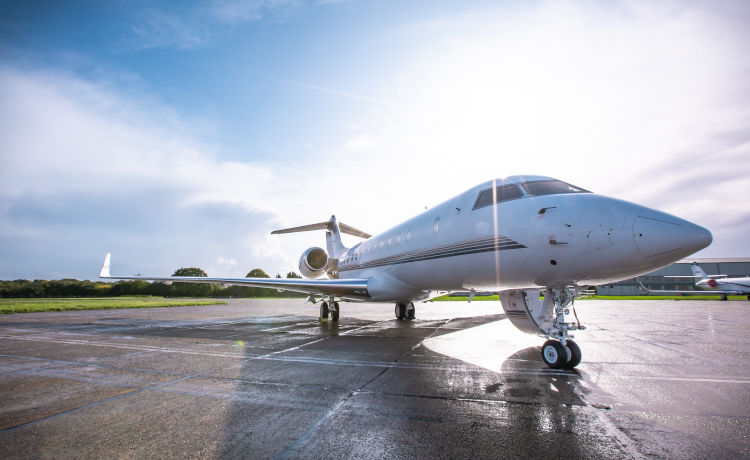As the world comes to terms with the “new normal” of the coronavirus pandemic, business seems to be booming in the private aviation industry. Recent reports from Air Partner, NetJets and Sentient have shown a marked rise in flight bookings. Now, international broker Air Charter Services (ACS) has reported a 75% increase in inquiries during the months of May and June compared to the same time last year. Although July figures were not available at the time of writing, a glance at the first two weeks of the month suggest that this trend is likely to continue.

New and Existing Clients
“We have been arranging private jet travel for existing clients as well as new clients who are looking for a better way to travel than commercial and more peace of mind. With the current pandemic, those who normally travel in first class commercially are elevating their experience with personal well-being in mind, especially for older clients who have more health concerns,” said Richard Thompson, President of Air Charter Service Americas. “It’s a more streamlined process to get from A to B, whether that’s for business or leisure. The greatest number of private aircraft users are North Americans and half of our calls are from new customers.”
Blake Crawford, Director of Private Jets at ACS, provided some further insight into who is choosing to travel with Air Charter Service and where they are flying to. A lot of new customers have contacted ACS within the past few months. Many of these may have had the financial means to fly privately in the past but have opted not to. However, now Crawford says the focus has pivoted away from the luxury, speed, and convenience aspects of private air travel. He says, “While we still provide all of those benefits, people are attracted to the isolation of private jets, the health and safety aspects.”
Minimize Touchpoints
The coronavirus pandemic may have caught everyone by surprise, but ACS has been able to draw upon its 30 years of global experience to deal with the situation. In the past, their international offices have dealt with repatriation flights during times of political upheaval as well as during medical emergencies, such as the ebola outbreak in Africa. As the pandemic began to unfold overseas, the company put together a committee to take the necessary proactive measures. It was clear that, while information about the virus was and still is evolving, certain preventive steps could be taken.
Foremost among the concerns of travellers is that of potential exposure. Crawford notes that there are thousands of possible touchpoints when taking a commercial flight, from the handle of the airport shuttle bus through security and check-in to the plane itself and arrival at one’s destination. Crawford says, “A charter flight enables people to minimize these touchpoints to perhaps just five or six.” Upon arrival at the terminal, passengers can skip the crowds and board their aircraft, coming into contact with only the flight crew.

Who Is Flying?
Customers, both new and existing, fit into two demographics. First, Crawford says, there are those traveling for personal reasons. After months stuck at home, they are keen for a getaway, and with most international destinations currently off limits, they are looking within the US, Mexico, and the Caribbean. Many are escaping to second homes and the relative isolation of Montana or Wyoming, while others are heading to the beach resorts of California, Florida, or the Bahamas.
Then there are the business flyers. Many companies that make heavy use of commercial travel are coming to terms with the fact that we do not know how long certain pandemic restrictions will be in place. They are seeking ways to carry out business and meet their travel needs with the least amount of disruption for the foreseeable future. Crawford says that they are taking a strategic approach in planning their travel budgets for the next 6, 12, or even 18 months. "Charter jets provide them with dependability and convenience, as well as peace of mind," he adds.

